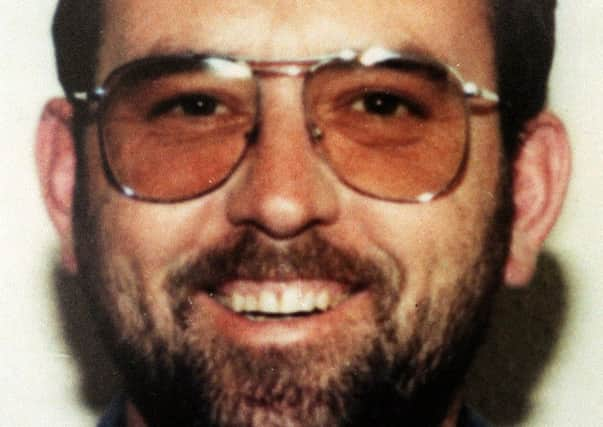'˜Special' killed by IRA assassin


Special Constable Glenn Goodman, 37, was on routine patrol with PC Sandy Kelly on the A64 in June 1992 when, by chance, they stopped a car in which Paul Magee was travelling. The car was driven by Michael O’Brien.
While the two unarmed policemen were awaiting checks on the car and its occupants, SPc Goodman was shot at point blank range by Magee. The policeman died later that day, but SPc Kelly recovered from his wounds.
Advertisement
Hide AdAdvertisement
Hide AdMagee, 45, was found guilty of the murder of SPc Goodman, the attempted murder of SPc Kelly and attempted murder of Pcs Mark Whitehouse and Susan Larkin. O’Brien was cleared of the murder and the attempted murder of Pc Kelly but convicted of the attempted murder of the other two officers.
Magee was sentenced to life and O’Brien to 18 years in prison, but they were released in 2000 under the terms of the Good Friday Agreement.
A flood of applications from coal miners suffering from chronic bronchitis and emphysema could almost double the number of people seeking compensation for industrial injuries, Social Security Secretary Peter Lilley said.
He confirmed that the two respiratory conditions would now be classed as industrial diseases, providing miners could prove they were directly linked to working underground.
Advertisement
Hide AdAdvertisement
Hide AdThere was some suspicion that the timing of the announcement was politically motivated – coming shortly before the pit closure vote by members of the National Union of Mineworkers. Its President, Arthur Scargill, said it would not deflect his members from action against the shutdowns.
Education chiefs in Sheffield were launching an investigation into claims that children were bullying others so they could get sent home from school. The move followed complaints from angry parents of pupils at Shiregreen Junior and Infants School. The row had flared up after staff introduced the ‘assertive discipline’ programme, which rewarded well-behaved children and sent violent children home.
Working parents said the scheme was playing havoc with their child-care arrangements, and a 200-name petition called for a public meeting to discuss the new policy and alternative forms of discipline.
A spokeswoman for the parents said: “Kids are sent home straight away if they cause trouble. Now some of them know how to play the system and go and hit another child just to get out of lessons.”
Advertisement
Hide AdAdvertisement
Hide AdIn foreign news, The Yorkshire Post reported that the longest ceasefire in the year-long war had taken hold across ravaged Bosnia, as a United Nations convoy reached thousands of cold, hungry refugees in the eastern enclave of Srebrenica.
And future winners of the Derby of Grand National could soon be picked out by trainers and owners using the world’s first ‘on-board’ horse speedometer – invented at York University.
The revolutionary device looked set to overturn the traditional form book of the equine world.
It would also provide a testing system for a horse’s health and fitness to equal the high-tech equipment used on human athletes. For the first time a horse’s top speed would be accurately measured as it galloped, while heart rate and other indicators were also monitored.
Its designers were hoping to sell the device for around £300, with potential for as many as 10m sales worldwide.